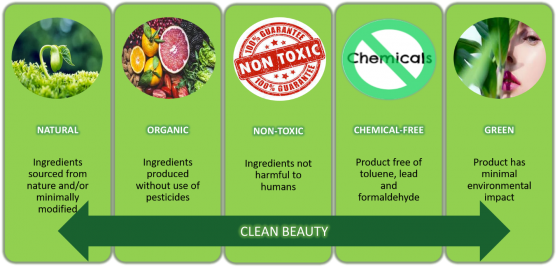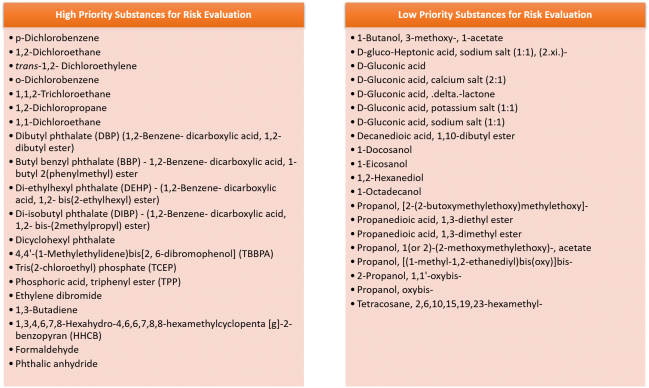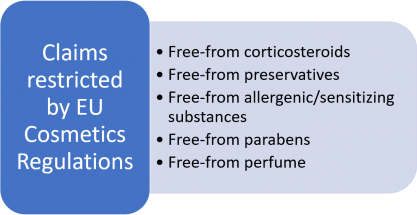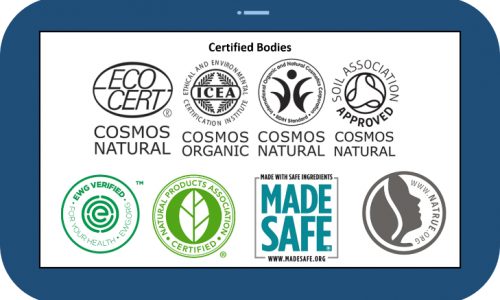Move over, sheet masks, essences and facial gels! It is now the turn of the clean beauty movement to enter mainstream beauty arena. Consumers’ growing demand for transparency in cosmetic products has led to the clean beauty movement. The clean beauty movement has been driven by the eco-conscious attitude of Gen Y and Gen X. So what exactly does “clean beauty” mean? Clean beauty is a term still open to interpretation; some imply the use of natural and organic products while others indicate the use of non-toxic and/or ethically sourced ingredients. Consumers cannot be galvanized by over-the-top claims anymore. Growing demographic of cautious consumers has compelled the beauty industry to disclose detailed list of ingredients used to formulate the product. The pioneers in the beauty industry are therefore brainstorming to curate products that are clean.
Although brands have different interpretations of what clean beauty means, they all agree on the fact that clean products must be non-toxic and safe. Certain brands have further extended it to ethical standards of being cruelty-free and environment sensitive. Since social media has emerged as a huge global platform, both young and middle-aged consumers have become more aware and curious about brands that identify themselves with clean beauty. Beauty brands are also focusing on formulating vegan friendly products with minimalistic and bio-friendly packaging.
Regulations on Personal Care Products
The Cosmetics safety laws framed by US Food and Drug Administration have remained significantly unaltered since 1938 resulting in only about 11 ingredients being banned. As FDA has no standard definition or regulation for the term “natural”, beauty companies have been using self-proclaimed tags such as natural, organic and chemical-free on their products. However, certain firms have responded to the legitimate concerns of consumers by establishing their own principles of natural and restraining from use of potent chemicals.
In the context of recent controversy regarding presence of asbestos in Claire’s beauty products and the rising demand for transparency in ingredients, the FDA has finally got into action on regulation of personal care products. On 7th March 2019, two senators, Dianne Feinstein and Susan Collins introduced Personal Care Products Safety Act, a bill to protect consumer health. This bill, if passed, will give FDA the authority to regulate the list of ingredients along with their concentrations in any product including fragrances, flavors and colors. In case the ingredients are deemed to be unsafe for the consumer, FDA can demand a product recall. A detailed government inspection of the product manufacturing facility as well as process can be done. FDA is set to evaluate five ingredients per year, beginning with the following five ingredients in the fiscal year 2020:
- Diazolindinyl Urea: A formaldehyde releaser, it is used as an anti-microbial preservative in wide range of products such as bubble bath, baby wipes, detergents, shampoos and cosmetics.
- Diethyl Phthalate: A suitable solvent for organic molecules, it is used as a binding agent in cosmetics and fragrances.
- Formaldehyde: A preservative used in sunscreens, lotions, shampoos, conditioners, shower gels and cosmetics.
- Propylparaben: Used in deodorants, shampoos, conditioners, body lotions and cosmetics on account of its anti-fungal and anti-bacterial property.
- Quaternium-15: A formaldehyde releaser, it is used as a preservative in hair styling products, conditioners, creams and cleansers.
Estee Lauder, Johnson & Johnson, L’Oréal, Procter & Gamble, Revlon and Unilever are a few conglomerates supporting the proposed Personal Care Products Safety Act. Beautycounter, an American Direct Retail skin care and cosmetics brand, has also been an advocate of consumer health safety and demands reduction in the concentration of these toxic chemicals in personal care products. Some health and consumer organizations such as Environmental Working Group, Good Housekeeping Institute, Endocrine Society, The Beautywell Project and many others have also expressed support for the proposed bill.
In addition to this, US Environmental Protection Agency (EPA) has proposed to consider 20 chemicals as “high priority” substances and 20 chemicals as “low priority” substances for risk evaluation in order to amend the Toxic Substances Control Act (TSCA). American Chemistry Council (ACC) has actively responded by agreeing to analyze these chemicals and give their formal comments. As these lists include certain cosmetic ingredients, it will impact the product formulations of beauty and personal care industry.
Europe has been more stringent with cosmetic regulations. Since July 2019, there has been a restriction on use of certain claims. The restriction of ‘free from’ claims are based on the common criteria of truthfulness and honesty. Since allergens and allergen precursors are subjective to the skin type, hypoallergenic claim can be refuted. This can make it challenging for brands and perhaps, hinder their marketing strategy. However, if any product is vegan, the claim of ‘free from animal derived ingredients’ is allowed and ‘free from alcohol’ claim can be permitted in case of certain personal care products.
The EU Scientific Committee has a long term ban on marketing of products with animal-tested ingredients. It has been rigorously checking for potential endocrine disruptors. This has raised concerns on future developments and has encouraged scientists to move towards in-vivo testing for prediction and analysis of several ingredients.
In South Korea, cosmetics containing SPF and UV filters, anti-acne (quasi drug) and anti-aging claims are categorized as functional products and are more firmly regulated than the non-functional ones.
Japan has a complex system wherein personal care products are divided into general and medicated products. It has lists for positive, negative and restricted ingredients. Products comprising of UV absorbents, anti-oxidants, preservatives and heavy metals are analyzed in detail.
Animal Testing
The EU Cosmetics Regulation does not permit the sale of products containing animal-tested ingredients. Australia, South Korea and Taiwan have completely banned animal testing. China is slowly looking at alternatives to animal testing i.e., Short Time Exposure Assay and Direct Peptide Reaction Assay for eye irritation and skin sensitization respectively.
Certified Bodies
The lack of universally accepted definition of ‘natural’ and ‘organic’ has inspired organizations to establish standards for consumer assurance. Over the last few years, beauty companies have relied upon certain certified bodies for natural and organic claims of their products.
COSMOS-standard is a globally recognized cosmetic standard registered in Belgium. It promotes the use of natural and organic ingredients and lays emphasis on sustainable production and manufacturing of cosmetics. Not only are the organic ingredients verified, but labelling of the product to be launched is also controlled. Annual inspections are carried out to ensure on-going compliance of organic composition, manufacturing, storage and labelling of the certified cosmetic products.
Another non-profit organization that endorses health and well-being is the Environmental Working Group. As per the requirement of EWG VERIFIED™ mark, an ingredients list including fragrances is to be disclosed which will be thoroughly verified. The EWG’s Skin Deep database, one-of-a-kind digital platform, provides accessible information regarding ingredients in the personal care product. This database offers transparency to the consumer with a two-part score- a hazard score and a data availability score based on which the user can deliberate. Although widely popular, it is flawed due to functionally limited data.
Made Safe® is America’s first nontoxic seal for all personal care products including baby products. The molecular composition of the product is carefully scrutinized to ascertain its effect on human health. The list of ingredients and raw materials is screened using their proprietary database for any possible carcinogens, behavioral toxins, neurotoxins, hormone disruptors or reproductive toxins. Bioaccumulation in human body, toxicity to ecosystem, and sustainability are also taken into account.
NPA Natural Standard is based on natural ingredients, safety, responsibility and sustainability. Under the Natural Standard for Personal Care Products, allowed ingredients come from or are made from a renewable resource found in nature (flora, fauna, mineral), with absolutely no petroleum compounds. The focus is on purity of the natural, cruelty-free, non-toxic, biodegradable ingredients and packaging. Illustrative “Positive List” of ingredients is provided and only ethically sourced ingredients are allowed. About 60% of personal care products marketed by the given brand must comply with NPA Natural Standard requirements.
NATRUE is an international non-profit association dedicated to protect and advocate true organic and natural claims in cosmetic industry. Any chosen product is accredited with NATRUE Label only after rigorous certification process. All ingredients of the product must be natural, derived from natural or nature-identical substances. Two separate certification processes are required for the raw materials and finished products. Along with partner IOAS, NATRUE ensures that the certified products belong to organizations that are wholly committed to organic and natural products only.
Clean Beauty Products in the Market
The following are a few interesting “Clean Beauty” products.
Countersun Sunscreen from Beautycounter, comes in three different formulae – lotion, stick and mist. This brand has vowed not to use questionable ingredients as per their ‘The Never List™’ and also promised to minimize their environmental impact.
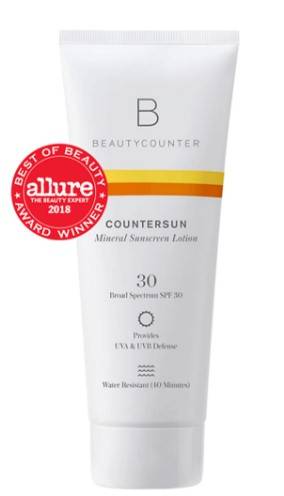
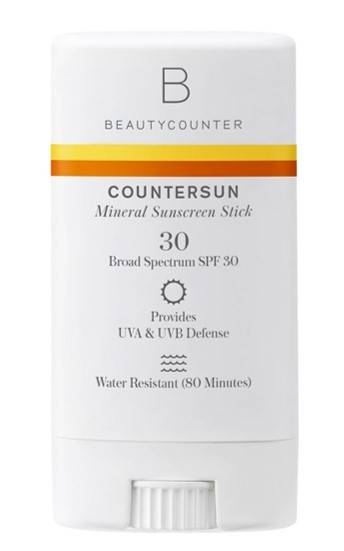
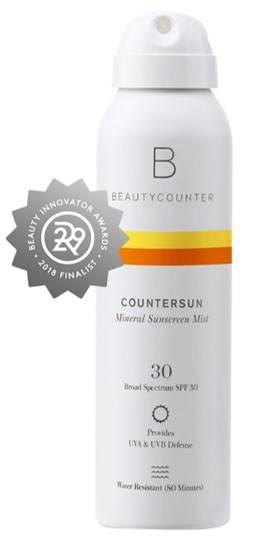
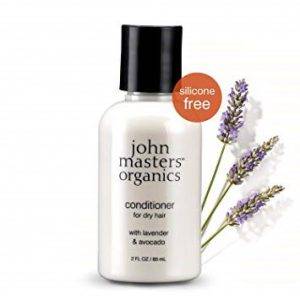 The mild anti-oxidants rich formula of Conditioner for Dry Hair with Lavender and Avocado from John Masters Organics promises to leave hair with an intense hydrating texture.
The mild anti-oxidants rich formula of Conditioner for Dry Hair with Lavender and Avocado from John Masters Organics promises to leave hair with an intense hydrating texture.
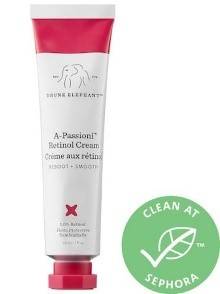 Drunk Elephant, has emerged as one of the best-selling brands at the clean counter of Sephora. Its anti-aging solution, A-Passioni™ Retinol Cream with one percent vegan retinol, triple peptide blends and vitamin F rich formula, is 100% free of essential oils, silicones and fragrance. It is also gluten-free and cruelty-free.
Drunk Elephant, has emerged as one of the best-selling brands at the clean counter of Sephora. Its anti-aging solution, A-Passioni™ Retinol Cream with one percent vegan retinol, triple peptide blends and vitamin F rich formula, is 100% free of essential oils, silicones and fragrance. It is also gluten-free and cruelty-free.
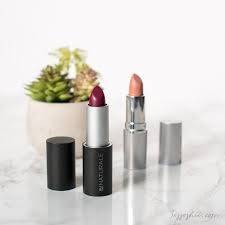 With its cruelty-free, paraben-free, vegan and non-toxic formula, Eternity Lipstick has been the best-seller at Au Naturale. Its naturally derived and long-lasting pigments are quite fetching for all age groups.
With its cruelty-free, paraben-free, vegan and non-toxic formula, Eternity Lipstick has been the best-seller at Au Naturale. Its naturally derived and long-lasting pigments are quite fetching for all age groups.
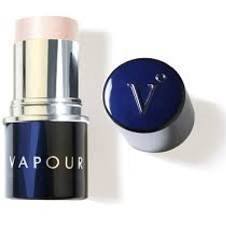 The contemporary indie brand Vapour Organic Beauty has caught everyone’s attention with their three guiding principles namely Purity, Performance and Progress. The brand prioritizes personal and planetary health. The products have fresh and natural appeal. Mini Halo Illuminator with its simple formula is widely popular among make-up artists.
The contemporary indie brand Vapour Organic Beauty has caught everyone’s attention with their three guiding principles namely Purity, Performance and Progress. The brand prioritizes personal and planetary health. The products have fresh and natural appeal. Mini Halo Illuminator with its simple formula is widely popular among make-up artists.
Startups
- APTO Skincare is an affordable non-toxic, vegan and cruelty-free
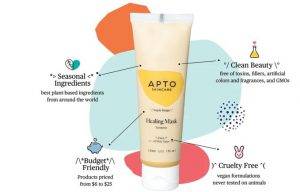 skincare brand. Its motto is to provide clean beauty products.
skincare brand. Its motto is to provide clean beauty products.
- Allyoos has stood out by achieving safe, feel-good formulations. Its light
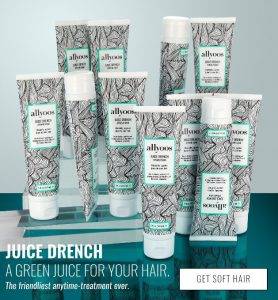 weight formula with a blend of organic ingredients for manageable hair made it to the shelves of Target earlier this year.
weight formula with a blend of organic ingredients for manageable hair made it to the shelves of Target earlier this year.
- Ruby’s Organics is a natural and vegetarian makeup brand. Along with
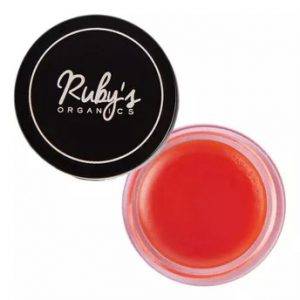 ethical values and paraben-free formula, its fresh and minimalistic appeal is alluring beauty enthusiasts.
ethical values and paraben-free formula, its fresh and minimalistic appeal is alluring beauty enthusiasts.
- Oars + Alps is an exclusive natural skincare line offering practical and
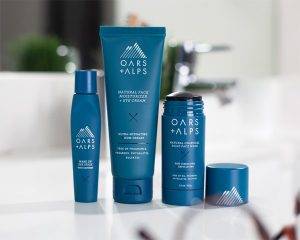 portable products for men only.
portable products for men only.
- SkinKick is a progressive skincare line providing solutions for acne, spots
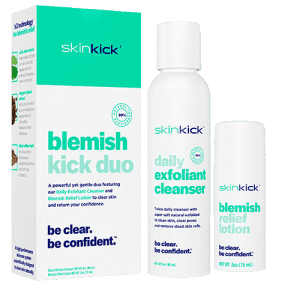 and dullness of skin. It offers trio-kits with rejuvenating formulas using natural plant derived ingredients rather than harsh chemicals.
and dullness of skin. It offers trio-kits with rejuvenating formulas using natural plant derived ingredients rather than harsh chemicals.
Mergers & Acquisitions
Corporate companies in the beauty space have taken cognizance of the clean beauty concept and are evaluating other companies in the personal care space, particularly those with a focus on natural products. This has led to several acquisitions in this space. Unilever acquired REN <iway back in 2015, followed by Schmidt’s Naturals in 2017. Earlier this year Unilever also acquired a contemporary skincare brand, Tatcha. Tatcha formulates its products with natural ingredients inspired by the Japanese rituals.
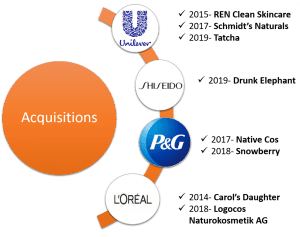
P&G is stepping into the clean beauty market through the acquisition of the startup Native Cos, a natural deodorant brand, in November 2017. Later P&G acquired a New Zealand based natural skincare brand, Snowberry, which specializes in formulating anti-aging products.
Japanese beauty company Shiseido acquired a non-toxic skincare brand Drunk Elephant on October 8, 2019.
L’Oréal began by acquiring natural beauty pioneer Carol’s Daughter back in 2014. Logocos Naturkosmetik AG, a German cosmetic company with vegan and natural plant-based formulations was also acquired by L’Oréal last year.
With exponential increase in the number of conscious buyers, personal care companies are also increasing their investments in natural and organic ingredient-based startups.
Recent Patent Applications
A few interesting patent applications that have been filed recently are listed below:
AmorePacific Corporation, a South Korean cosmetics company, filed WO2018212588A1 disclosing a composition used for skin anti-aging with an active ingredient which is an extract of Camellia sinensis (a source of black and green tea) having high content of epigallocatechin-3-O-(3-O-methyl) gallate, a known anti-inflammatory agent.
Mary Kay Inc, in its patent application US20190038689A1, has disclosed a topical composition consisting of extracts of saccharide isomerate, Myrothamnus flabellifolia, algae, mugwort (Artemisia vulgaris), and [6]-paradol for reducing skin inflammation.
Access Business Group International LLC, has filed a patent application US20190160117A1 on a method and topical composition of Corynebacterium species for modification of skin microbiome.
BASF, has filed a patent application WO2019020920A2 that discloses the use of Momordica Cochinchinesis (Gac) extract obtained using water as the sole solvent to prevent and repair the effects of photoaging.
Conclusion
The profound emphasis on health and well-being has motivated consumers to make well-informed decisions before they buy any beauty product. Beauty conglomerates are therefore investing in formulating natural ingredients based efficacious products while consciously excluding toxic chemicals. Companies must also avoid ostensible claims of “paraben-free”, “sulfate-free”, “chemical-free” or “non-toxic” to comply with the laws of regulatory authorities. US FDA has also taken a step forward towards regulating the personal care products. Clean beauty is thus no longer just a fad and is expected to become a lifestyle choice for many.
References
- https://www.goodhousekeeping.com/beauty/a26522538/clean-beauty/
- https://chemicalwatch.com/79864/industry-reach-framework-adequate-for-edcs-but-more-guidance-needed
- https://goop.com/beauty/personal-care/clean-beauty-and-why-its-important/
- https://www.cbinsights.com/research/report/beauty-trends-2018/#jbeauty
- https://www.mintel.com/blog/beauty-market-news/beauty-spot-is-gac-the-next-skincare-superfruit
- https://www.madesafe.org/science/process/
- https://www.madesafe.org/about/about-us/
- https://cosmos-standard.org/the-cosmos-standard/
- https://www.desjardin.fr/en/blog/understanding-cosmos-the-cosmetics-organic-and-natural-standard
- https://www.ewg.org/ewgverified/about-the-mark.php
- https://www.ewg.org/skindeep/2011/04/12/why-this-matters/
- https://www.natrue.org/why-us/what-makes-the-natrue-label-unique/
- https://www.npanational.org/certifications/natural-seal/natural-seal-personal-care/
- https://cleanbeautyasia.com/cosmetics-regulations-in-asia
- https://www.cosmeticsdesign-asia.com/Article/2019/05/03/Laws-Regulation-Top-news-on-cosmetics-regulation-across-the-APAC-region
- https://www.cosmeticsdesign-asia.com/Article/2019/05/13/Natural-and-organic-beauty-one-of-the-key-drivers-of-Indonesia-s-personal-care-market
- https://www.retaildive.com/news/target-accelerator-welcomes-10-new-beauty-startups/547246/
- https://www.vox.com/the-goods/2018/9/18/17866150/natural-clean-beauty-products-feinstein-cosmetics-bill-fda
- https://www.cnbc.com/2018/08/01/fda-begins-first-inquiry-of-lightly-regulated-cosmetics-industry.html
- https://cdn3.ewg.org/sites/default/files/u352/Personal%20Care%20Products%20Safety%20Act%20of%202019.pdf?_ga=2.74567762.1719855994.1562905945-1717683622.1562668880
- https://cdn3.ewg.org/sites/default/files/u352/Personal%20Care%20Products%20Safety%20Act%20of%202019.pdf?_ga=2.74567762.1719855994.1562905945-1717683622.1562668880
- https://www.cbinsights.com/research/beauty-brand-acquisition-targets/
- https://goop.com/beauty/makeup/nontoxic-organic-and-gorgeous-pigments-what-it-takes-to-create-non-toxic-makeup/
- https://www.forbes.com/sites/richardkestenbaum/2019/04/01/indie-beauty-startup-trends-loreal-lauder-shiseido/#52608ec63478
- https://www.cosmeticsandtoiletries.com/research/patents/
- https://www.today.com/style/what-clean-beauty-understanding-what-s-your-beauty-products-t121228
- https://www.scmp.com/business/companies/article/2182354/global-cosmetics-giants-push-deeper-personal-care-niche-brand
- https://www.cosmeticsbusiness.com/news/article_page/Global_beauty_and_personal_care_acquisitions_hit_new_high/146274
- https://www.livemint.com/companies/news/unilever-considers-1-billion-bid-for-skincare-brand-drunk-elephant-1557666463914.html
- https://follain.com/
- https://www.today.com/style/best-clean-beauty-products-t148156
- https://www.allure.com/story/best-natural-organic-makeup-brands
- https://mycleancosmetics.com/certified-organic-skin-care-brands
- https://www.today.com/style/what-clean-beauty-understanding-what-s-your-beauty-products-t121228
- https://www.health.harvard.edu/blog/clean-cosmetics-the-science-behind-the-trend-2019030416066
- https://cosmeticsinfo.org/cosmetics-regulation
- https://www.ewg.org/skindeep/search.php?query=The+Face+shop&h=Search
- https://www.in-cosmetics.com/en/Sessions/70060/Pre-Show-Regulatory-Conference
- https://www.cosmeticsdesign-europe.com/Article/2019/02/08/5-latest-updates-for-regulation-and-safety-in-beauty-2019
- https://www.cbinsights.com/research/report/beauty-trends-2018/
- https://www.cnbc.com/2018/08/01/fda-begins-first-inquiry-of-lightly-regulated-cosmetics-industry.html
- https://www.cosmeticsandtoiletries.com/regulatory/region/northamerica/EPA-Eyes-20-Chemicals-for-High-Priority-Risk-Evaluation–ACC-Responds-558007321.html?utm_source=newsletter-html&utm_medium=email&utm_campaign=CT+E-Newsletter+08-26-2019&absrc=hdl
- https://www.globalcosmeticsnews.com/breaking-shiseido-pips-lauder-and-unilever-to-drunk-elephant-prize/
Disclaimer:
- This document has been created for educational and instructional purposes only
- Copyrighted materials used have been specifically acknowledged
- We claim the right of fair use as ascertained by the author
AUTHOR
Ms. Shilpa Ravula
Submit your review | |

